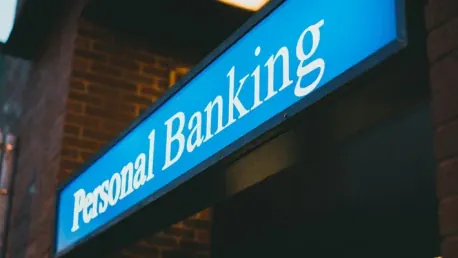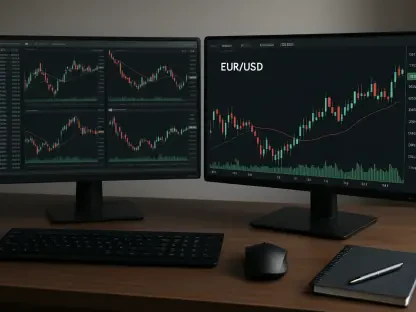Priya Jaiswal is a recognized authority in Banking, Business and Finance, with extensive expertise in market analysis, portfolio management, and international business trends. In this interview, we will discuss a range of topics including the basics of banking, the advantages of bank accounts, how to choose a reputable bank, common banking fees, opening accounts, making deposits, funds availability, and different savings options.
What are banks, and what primary functions do they serve?
Banks are financial institutions that accept deposits from the public, provide safety for those deposits, and use those funds to lend money to individuals and businesses. These functions enable banks to play a crucial role in the economy, facilitating transactions, providing capital for investment, and serving as intermediaries in financial activities.
Why might someone question the necessity of having a bank account today?
Advances in technology have provided alternatives to traditional banking, such as online payment systems and prepaid debit cards. These options allow individuals to perform many of the same functions as a bank account, like paying bills and transferring money, leading some to question whether a bank account is essential.
What are some alternatives to using a traditional bank account?
Alternatives include prepaid debit cards, online payment services like PayPal and Venmo, and operating on an all-cash system by cashing paychecks at retail stores or check-cashing locations and paying bills in person.
Can you explain why keeping your money in a bank is considered more secure than other methods?
Keeping money in a bank is secure because banks offer FDIC insurance, which protects deposits up to $250,000 per owner, per account. This guarantee safeguards your money against theft, loss due to natural disasters, and financial crises, unlike keeping cash at home or using prepaid debit cards, which offer limited protection.
How does a prepaid debit card compare to a bank account in terms of security?
While prepaid debit cards are more secure than cash, they are still vulnerable to theft or loss. Recovering stolen or lost funds from a prepaid debit card can be challenging, whereas bank accounts offer extensive protections, including FDIC insurance and fraud prevention measures.
What conveniences does a bank account offer for paying bills and accessing money?
Bank accounts provide various conveniences such as online bill payment services, the ability to write checks, ATM access, and mobile banking apps. These methods make it easier to manage finances, pay bills promptly, and access funds from anywhere.
How can having a bank account aid in saving and investing?
A bank account facilitates saving and investing by offering access to savings accounts, money market accounts, and certificates of deposit. These financial products allow individuals to earn interest on their deposits, manage their savings, and plan for long-term financial goals.
What factors should someone consider when choosing a reputable bank?
Key factors include the bank’s legitimacy, FDIC membership, reputation, convenience, fees, interest rates, and the range of services offered. Researching these aspects can help ensure you select a reliable institution that meets your financial needs.
How does the FDIC protect your deposits, and what are the coverage limits?
The FDIC insures deposits up to $250,000 per owner, per account category, protecting your funds in the event of a bank failure. This coverage ensures that your money is safe even during financial crises or bank insolvencies.
What are the differences between online-only banks and traditional brick-and-mortar banks?
Online-only banks typically offer lower fees and higher interest rates due to reduced overhead costs. However, they lack physical branches, which can be inconvenient for cash deposits and face-to-face interactions. Traditional banks offer both online and in-person services, providing broader access and personalized assistance.
How do online-only banks typically differ in fees and interest rates compared to brick-and-mortar banks?
Online-only banks often have fewer or no monthly maintenance fees, lower minimum balance requirements, and higher interest rates on savings products compared to traditional brick-and-mortar banks, making them more cost-effective for many customers.
What are some common fees associated with checking accounts?
Common fees include monthly maintenance fees, overdraft fees, ATM fees, paper statement fees, and fees for falling below minimum balance requirements. Checking these fees before opening an account can help avoid unexpected costs.
How can consumers avoid paying excessive fees?
Consumers can avoid excessive fees by selecting accounts with low or no fees, maintaining required minimum balances, setting up direct deposits, using in-network ATMs, and monitoring their account activity to prevent overdrafts and other penalties.
What are the requirements for opening a checking account?
Requirements typically include an opening deposit, valid identification, proof of address, and contact information. You must also be at least 18 years old or open a joint account with a guardian if underage.
What identification is needed to open a bank account in the United States?
Acceptable identification includes a Social Security card, birth certificate, passport, driver’s license, state ID, and possibly an ITIN for non-U.S. residents. Federal laws require banks to verify this information for all account holders.
Can non-U.S. residents open a bank account, and what identification is needed for them?
Non-U.S. residents can open a bank account using foreign passport, foreign driver’s license, alien registration card, employment ID, or ITIN. Federal law prohibits discrimination based on nationality, ensuring all individuals can access banking services.
What are the different methods available for making deposits into a bank account?
Methods include in-person deposits at a branch, ATM deposits, mobile deposits via smartphone apps, online deposits, mailing checks, direct deposits, and ACH transfers from other accounts. Each method provides varying levels of convenience and processing times.
How do mobile deposits work, and what is required?
Mobile deposits involve using a banking app to take pictures of the check’s front and back. The app requires entering the check amount and account details. The bank verifies the images and credits the amount to your account, typically processing within one to two business days.
What is the process for receiving direct deposits?
Direct deposits are facilitated by providing your employer with bank routing and account numbers. The employer electronically transfers your funds directly into your account, often making them available on payday, without the need for paper checks.
How does an ACH transfer differ from other deposit methods?
ACH transfers electronically move funds between accounts at different financial institutions, often taking several days to complete. Unlike wire transfers, ACH transfers are usually free or low-cost and commonly used for direct deposits and recurring payments.
Why do banks place holds on deposits, and how long can these holds last?
Banks place holds to prevent fraud and ensure funds are cleared before use. Holds can last up to nine business days for large deposits or new accounts, but typically shorter for smaller deposits or established accounts. Policies vary by bank and deposit type.
What are the general guidelines for how long different types of deposits take to become available?
Cash deposits and government checks are generally available the next business day, direct deposits also by the next business day, and larger, non-U.S. checks can take up to nine business days. Online and mobile deposits usually clear within one to two business days.
What is the purpose of a regular savings account versus a checking account?
A regular savings account is designed to help you save money for future needs, offering interest on deposits. A checking account facilitates everyday transactions like bill payments and purchases, typically without earning interest or limiting withdrawals.
How do online savings accounts typically differ from regular savings accounts?
Online savings accounts usually offer higher interest rates, lower fees, and no minimum balance requirements. They are managed exclusively online, offering greater earning potential compared to some regular savings accounts from brick-and-mortar banks.
What are automatic savings plans, and how can they help with saving money?
Automatic savings plans involve setting up scheduled transfers from your checking to savings account. This system helps build the savings habit, ensuring consistent contributions without relying on memory or manual transfers.
Do you have any advice for our readers?
My advice is to thoroughly research and compare banks before opening an account, considering fees, interest rates, convenience, and security. Utilize automatic savings plans to ensure regular contributions to your savings and take advantage of online tools to manage your finances efficiently. Stay informed and proactive in protecting your banking information to prevent fraud.









